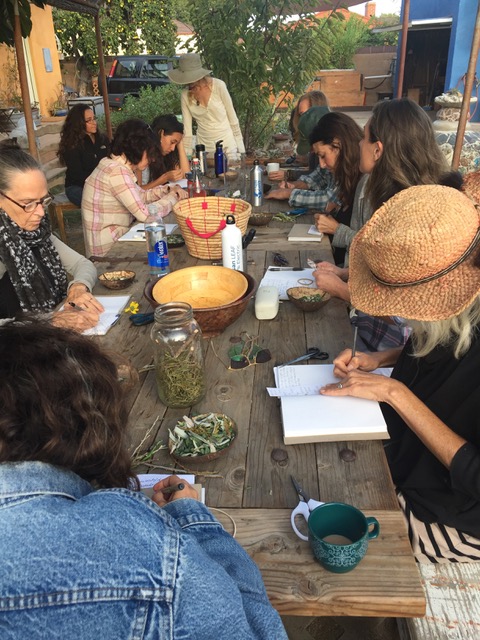1. What is foraging?
Foraging is just the act of searching for food--most people think of foraging as searching for wild food, but, technically speaking, I go foraging in my refrigerator every day.
2. Why do you forage?
First, I'd like to say that I've planted many of the edible and medicinal plants that I wild forage in my garden. Living in a city of 10 million people, our presence already has a big impact on the ability of other animals to survive and thrive. When I do wild forage plants and mushrooms, I practice ethical harvesting. That said, I forage because it deepens my connection with nature. The forest is my church, and I like to take communion with the ecological web of life on a regular basis. Plus, who doesn't love free food?
3. Can you forage in Los Angeles?
If yes, where? It depends. State Parks and some of the surrounding hills are totally off limits. Private land is always an option, so long as you have permission from the land owner of course.
4. Can I forage in my neighborhood? Is it safe?
Urban foraging is a great way to connect to the community of plant friends in your neighborhood. That said, safety depends on where you're picking, and what you're picking. Some plants do a terrific job of cleaning up our messes--taking in toxins that we use and spill, like oil that drips from our cars and poisons we spray on our lawns. Generally speaking, if a lawn is full of ""weeds"" it's probably safe to eat the dandelions growing in it. After all, if it was sprayed with a biocide, there would likely be no weeds.
5. Where can I learn more?
Come for a walk with me! You can check out my recent TEDxUCLA talk and a list of upcoming walks and workshops at: www.ericawohldmann.com - You can also learn more about the 5-month Rewilding Immersion Series that I co-teach with Nadine Flowers, a wild woman and practitioner of wilderness therapy and nature-based healing techniques.
Street Address
City, State, Zip
(818)303-6771
organic love for your bath and body
Your Custom Text Here












